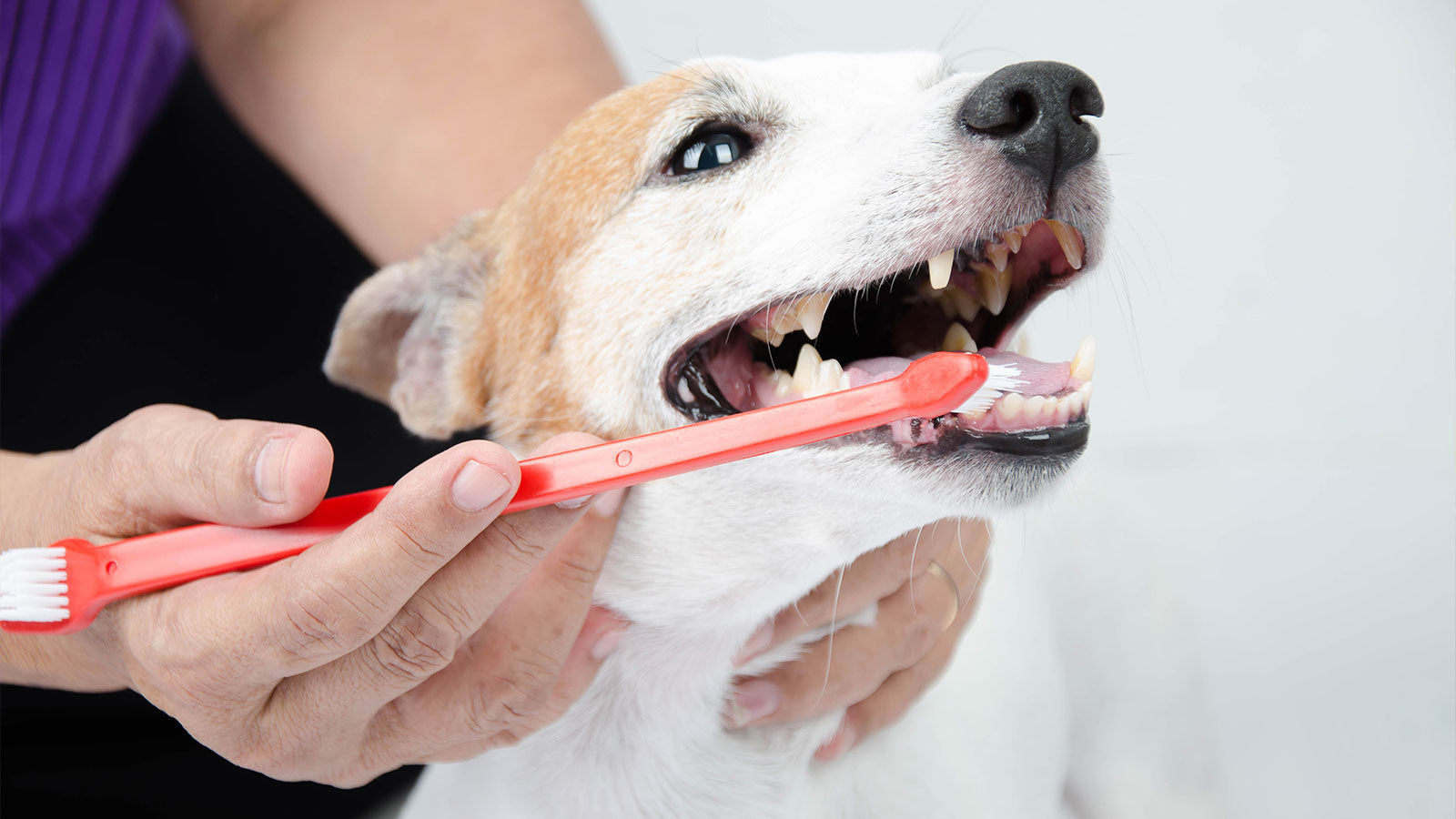Has your dog’s breath been less than pleasant lately? While a dog's breath isn't always fresh, chronic bad breath can signal underlying health issues.
Bad breath in dogs, often dismissed as just an inconvenience, can actually indicate underlying health issues. While it's normal for dogs' breath not to smell minty fresh, chronic bad breath is a different story. Identifying the root cause of your dog’s bad breath can help ensure better overall health and well-being.
Common Causes of Bad Breath
Several factors can contribute to your dog’s bad breath. Here are the most common causes:
- Dental or Gum Disease: Dental problems are among the leading causes of bad breath. Conditions such as periodontal disease, tartar buildup, and inflamed gums can result in foul-smelling breath. Studies show that periodontal disease affects a significant percentage of dogs, especially as they age.
- Gut Imbalance: An imbalance in gut bacteria, known as dysbiosis, can lead to bad breath. This imbalance might be caused by diet, medications, or stress.
- Acid Reflux: Acid reflux or gastroesophageal reflux disease (GERD) occurs when stomach acid flows back into the esophagus, leading to a foul odor.
- Megaesophagus: This condition, where the esophagus enlarges and loses its ability to move food to the stomach, can cause food to accumulate in the esophagus, resulting in bad breath.
What Different Breath Smells Indicate
Assessing the specific smell of your dog’s breath can give you clues about potential health issues:
- Sweet-Smelling Breath: This can be a sign of diabetes, particularly if accompanied by excessive drinking and urination.
- Urine-Smelling Breath: This may indicate kidney disease, especially if your dog is also experiencing a decrease in appetite or excessive drinking and urination.
- Foul-Smelling Breath: Often harder to pinpoint, this can be a warning sign for liver disease or a gastrointestinal issue.
When Bad Breath Means Infection
While bad breath doesn’t always signal an infection, it can sometimes be a symptom of one. Conditions like dental or gum disease can cause infections that contribute to bad breath. It’s important to be aware of the signs of these conditions, such as:
- Red, inflamed gums
- Tartar buildup
- Tenderness in the mouth
- Excessive drooling
- Loose teeth
Sudden Bad Breath: What Could It Mean?
Sudden bad breath can be particularly alarming. Some common causes include:
- Foreign Objects: Something stuck in your dog’s mouth, such as a piece of food or a small object, can cause bad breath. Always check your dog’s mouth thoroughly if there’s a sudden change in breath odor.
- Abscessed Teeth: An infected tooth can form an abscess, leading to pockets of pus and a very unpleasant odor. A vet may need to intervene to treat this condition properly.
- Eating Something Unusual: Dogs are known for their adventurous eating habits, which can sometimes include foul-smelling items like garbage or dead animals.
Natural Remedies for Bad Breath
Addressing the root cause of bad breath is the key to resolving it. Here are some natural methods to help prevent and manage bad breath:
- Raw Food Diet: Feeding your dog a species-appropriate raw food diet can help maintain dental health by reducing the buildup of harmful bacteria in the mouth.
- Raw Bones: Raw bones act as nature’s toothbrush, helping to clean your dog’s teeth naturally. Regularly chewing raw bones has been shown to significantly reduce plaque.
- Regular Brushing: Regular brushing with natural dog toothpaste can help keep your dog’s teeth clean and breath fresh. Avoid using human toothpaste as it may contain ingredients harmful to dogs.
- Probiotics: Incorporating probiotics, especially soil-based ones, into your dog’s diet can help restore and maintain a healthy gut microbiome, reducing bad breath caused by bacterial imbalances.
Myths About Kibble and Dental Chews
Many pet owners believe that kibble and dental chews can help clean their dog’s teeth, but this is a common misconception. Kibble can actually contribute to tartar buildup, and dental chews are often filled with carbs and synthetic ingredients that do more harm than good. Raw bones are a much healthier option for maintaining dental hygiene.
Conclusion
Bad breath in dogs isn’t just a minor inconvenience; it can be a sign of serious health issues. By understanding the potential causes and implementing natural preventive measures, you can help keep your dog’s breath fresh and their overall health in check. Regular veterinary checkups are also essential to ensure that any underlying conditions are addressed promptly.






Share:
Natural Ways to Manage and Reduce Lipomas in Dogs
Blood in Dog Poop: Identifying Types, Causes, and Essential Vet Care Tips